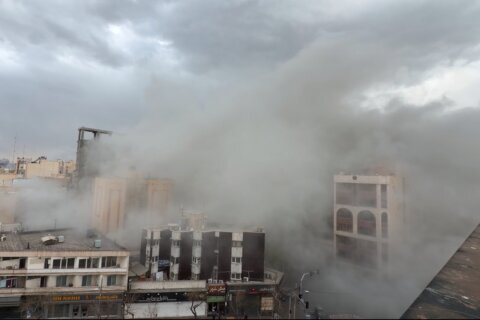WASHINGTON — In late January, after a marathon of meetings and hopscotching between various parts of Morocco, I flew down to Dakhla, Western Sahara.
I’d been told by colleagues from Morocco on the Move that there was a man there with a really tragic but inspiring story. A story that would help explain the urgent need to solve the impasse over the future of that territory.
The story belonged to Mohammed Cherif, 55, who survived five years in a brutal Polisario prison.
As a teenager in the 1970s, he had wanted to help Western Sahara gain its independence. He thought the Polisario could help him do it, but once he got involved with them, he realized he’d been tricked.
Instead of fighting to liberate Western Sahara he ended up in a 6-foot-by-5-foot hole in the ground for five years. He spent almost 23 hours a day in that dark pit next to a bucket that was his toilet. There was not enough room to stretch out to sleep so he tried to sleep in a crouch position — when he was allowed to sleep.
Every hour a guard came back and banged on the top of the hole –he was beaten severely if he didn’t answer. He was allowed to bathe once every six months. He had lice in his long beard and all over body. He couldn’t remember his name, because they took it away.
He was known as “Prisoner No. 16.” The story of how he survived and escaped was a said to me that our worst days here in America are a walk in the park for him.
I was excited to meet him. He told me to call him Cherif. He had a sparkle in his eye — an energetic, welcoming spirit. But there was something else remarkable about him. Here was a person who’d been to hell and back, and he was lucky because while many of those he was imprisoned with died in captivity, he survived.
I was eager to hear how he did it. He told me there were moments when he just prayed, “God, please help me get out of here.”
There were other times when he could hear the grim reaper banging down the door to his soul.
When we met, we clicked immediately, but right away it was clear we might have some difficulty communicating directly.
We speak four languages between us, but while his French and Arabic are excellent mine are not. His English was not good enough to conduct the interview, but we both are experts in Spanish so that became our common language.
And I’m glad we did, because his story is very moving and I’m not sure a translator would have allowed me to capture the nuances and deep personal scars he suffered.
He’s dedicated his life to finding out what happened to his friends and ending the suffering in the Polisario camps, but in some ways he’s still suffering as well.
But when you look at him you still see that youthful glint that tells you, he’s alright.
Follow @WTOP on Twitter and on the WTOP Facebook page.







